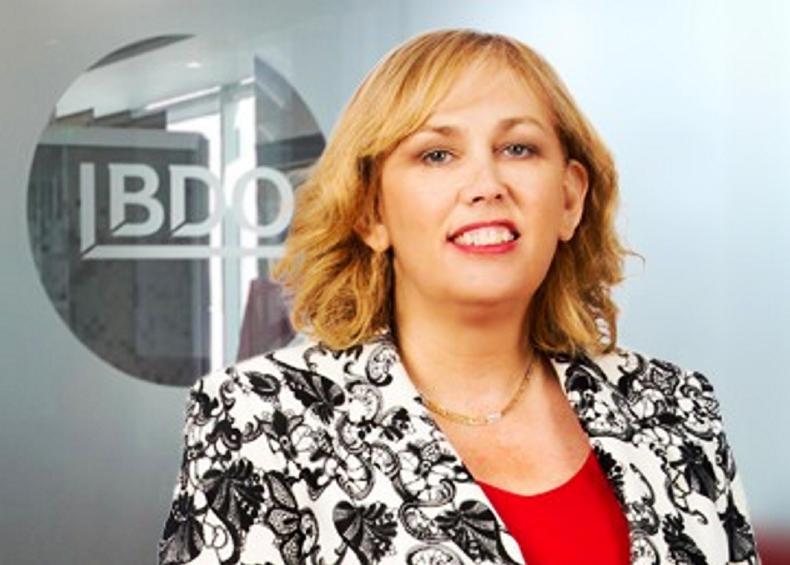There are not enough skilled people to deal with the complex web of paperwork Irish food companies will face in a no-deal Brexit, experts have warned.
Irish food ingredients and packaging going to and from the UK will require at least two customs declarations from 29 March, including payment of import duties and VAT, Carol Lynch, international trade consultant at BDO, warned. Lynch advises companies on cross-border trade and delivers Bord Bia training.
“There is no charge for lodging a customs declaration, but you have to pay an agent or staff to do it,” Lynch said. “We don’t have capacity, there’s a huge shortage of clearance agents. Many stopped after the single market was established in 1992.”
Revenue chair Niall Cody told the Oireachtas last week that customs declarations would increase from under 2m to 20m per year. He added that Revenue would have an extra 400 staff in place, but still warned of the risk of delays.
Meat Industry Ireland said that most meat exporters are familiar with formalities as they already export outside the EU.
Intense preparations
Dairy Industry Ireland reported intense preparations since the 2016 referendum, but admitted that procedures remain “very unclear and very difficult”.
The Irish Farmers Journal has confirmed that Kerry Ingredients, Lakeland Dairies, Abbott Ireland, Dawn Farms Distribution, Kepak, Irish Distillers and Diageo have obtained “trusted trader” status to fast-track their paperwork.
There is good news: the UK will recognise EU food standards temporarily after a no-deal Brexit, so there won’t be instant health checks on Irish products entering the UK.
Under a transit convention with the UK, Irish products travelling across Britain to the continent in sealed trucks will be tariff-free and checked only once upon arrival, Lynch explained.
British representatives at a meeting of UK and Irish ports last Friday confirmed that they were not planning border inspection on their west coast, BDO’s Peter Donnelly said.
Procedures will be even more complex for livestock and livestock products entering the Republic from the UK.
In addition to customs, their importers in Ireland will need to register with the Department of Agriculture “immediately” and notify each shipment 24 hours in advance, said Lynch.
They will then need to present at a border inspection post – currently in Shannon and Dublin only.
“Rosslare will have its border inspection point in place for 29 March,” Donnelly was told at the ports’ meeting. There will be chilled facilities for checks and Department vets will charge a fee to conduct inspections, Lynch added.
Read more
No clarity on land border
There are not enough skilled people to deal with the complex web of paperwork Irish food companies will face in a no-deal Brexit, experts have warned.
Irish food ingredients and packaging going to and from the UK will require at least two customs declarations from 29 March, including payment of import duties and VAT, Carol Lynch, international trade consultant at BDO, warned. Lynch advises companies on cross-border trade and delivers Bord Bia training.
“There is no charge for lodging a customs declaration, but you have to pay an agent or staff to do it,” Lynch said. “We don’t have capacity, there’s a huge shortage of clearance agents. Many stopped after the single market was established in 1992.”
Revenue chair Niall Cody told the Oireachtas last week that customs declarations would increase from under 2m to 20m per year. He added that Revenue would have an extra 400 staff in place, but still warned of the risk of delays.
Meat Industry Ireland said that most meat exporters are familiar with formalities as they already export outside the EU.
Intense preparations
Dairy Industry Ireland reported intense preparations since the 2016 referendum, but admitted that procedures remain “very unclear and very difficult”.
The Irish Farmers Journal has confirmed that Kerry Ingredients, Lakeland Dairies, Abbott Ireland, Dawn Farms Distribution, Kepak, Irish Distillers and Diageo have obtained “trusted trader” status to fast-track their paperwork.
There is good news: the UK will recognise EU food standards temporarily after a no-deal Brexit, so there won’t be instant health checks on Irish products entering the UK.
Under a transit convention with the UK, Irish products travelling across Britain to the continent in sealed trucks will be tariff-free and checked only once upon arrival, Lynch explained.
British representatives at a meeting of UK and Irish ports last Friday confirmed that they were not planning border inspection on their west coast, BDO’s Peter Donnelly said.
Procedures will be even more complex for livestock and livestock products entering the Republic from the UK.
In addition to customs, their importers in Ireland will need to register with the Department of Agriculture “immediately” and notify each shipment 24 hours in advance, said Lynch.
They will then need to present at a border inspection post – currently in Shannon and Dublin only.
“Rosslare will have its border inspection point in place for 29 March,” Donnelly was told at the ports’ meeting. There will be chilled facilities for checks and Department vets will charge a fee to conduct inspections, Lynch added.
Read more
No clarity on land border






 This is a subscriber-only article
This is a subscriber-only article










SHARING OPTIONS: